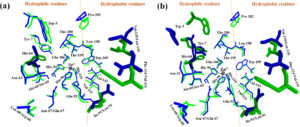INSPIRATION
Digital project management, one of the upcoming construction industry trends, uses cloud-based software to achieve the goals of quality, time, and cost. Project management already has defined principles for each phase of construction. In the initial phase, the project manager uses AI-based predictive algorithms to understand the project feasibility. Once approved, the manager sets milestones for everyone and distributes the resources using enterprise resource planning (ERP) software. In addition to ERP software,cloud-based tools ensure transparency and allow for large volume data storage. Managers also use such software to track expected and actual outcomes of every task and gather insights into bottlenecks. Towards the end of the project,managers draw blockchain-based smart contracts to affirm legal obligations and prevent financial fraud. In this way, digital construction project management reduces waste, increases workforce efficiency, and ensures project completion by deadline.
English startup Etch uses blockchain technology to automate payrolls. The smart contracts solution reduces the time between work completion and payment. Employees’ Etch wallets receive the money which is then transferred to an Etch card. The card is widely accepted and further eliminates the need of creating a bank account. Etch also reduces the administrative load of employers by automating payroll for
employees as per their work and ensures timely payments. It eliminates the need to sign payrolls, comply with taxes manually, and check duplicates. This makes cash flow management more efficient for construction companies.
Israeli startup Constru utilizes computer vision to improve construction site visibility. The startup automates project management using advanced AI, ML, and robotic technologies. The startup’s platform deploys virtual engineers to monitor every job throughout the construction site. An algorithm
identifies objects along with contextual information and compares them with the expected data to track the progress of projects. The platform also provides an overview of project schedules, budget overruns, and future risks. Project managers use this platform to streamline construction processes,acquire data-driven insights, and gain clarity on all ongoing projects.




